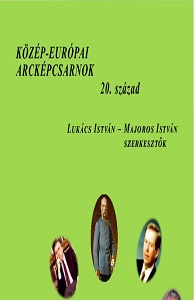Milan Kundera Közép–Európa tragédiájáról
Milan Kundera about the Tragedy of Central Europe
In the Crossfire of Disputes
Author(s): Agnieszka Janiec-Nyitrai
Subject(s): Cultural history, Czech Literature, Post-War period (1950 - 1989), Transformation Period (1990 - 2010)
Published by: Eötvös Loránd Tudományegyetem, Új-és Jelenkori Egyetemes Történeti Tanszék
Keywords: Milan Kundera; Central Europe; Central European identity; Russian culture; Czech culture; Czech literature; essay;
Summary/Abstract: The aim of the article is to depict the context of the origin of Kundera's essay „The Tragedy of Central Europe” (1984) and to summarize and characterize its key points. The author of the text also tries to answer the question why this essay has become a turning point in the debate on Cen-tral Europe's position between East and West. Then the author summa-rizes the most important voices of the debate, to which the essay has giv-en rise among emigrant circles. Not only did Kundera’s concept of Cen-tral Europe resonate among Central European intellectuals and emi-grants, but it also spoke to the West European and American public and helped popularize his literary work. „The Tragedy of Central Europe” es-tablishes Kundera’s attitude to the question of Central Europe. Here he lays the foundations of his thinking about the region, which he seems to have applied in his novelistic work as well. This essay had an enormous impact on discussions of Central Europe, and it has been analyzed in de-tail. Kundera’s controversial issues, especially those regarding his attitude to Russia and Russian culture, or the neglect of the Slovak context, as well as the abolition of the Slavic myth of Central Europe and his emphasis on the Hungarian literary and cultural contribution in formation of Central Europe are also discussed in the paper. There is no doubt that Kundera’s essay has begun the process of re-discovering Central Europe and has become an impetus for the rehabilitation of the region in the West and al-so has played an important role in formatting the Central European iden-tity.
Book: Közép-európai arcképcsarnok. 20. század
- Page Range: 189-204
- Page Count: 16
- Publication Year: 2018
- Language: Hungarian
- Content File-PDF

